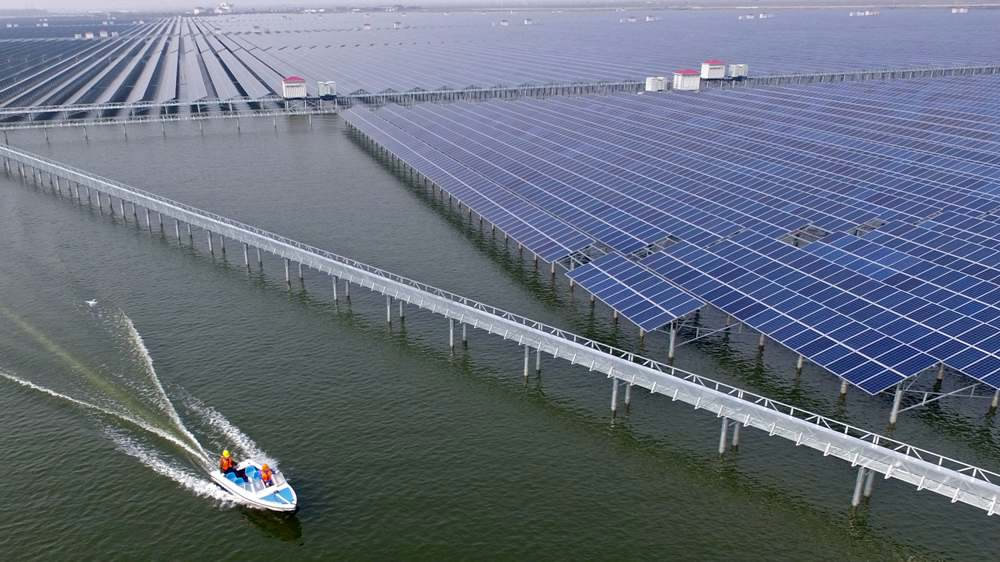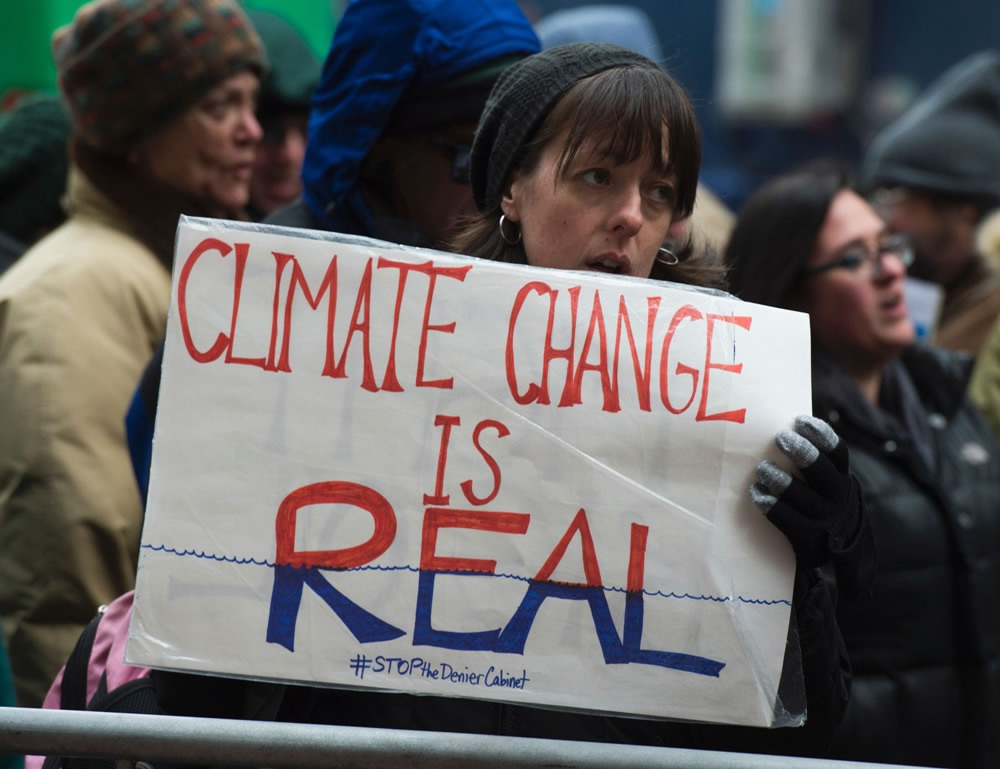
China
18:06, 17-Jan-2017
Climate envoy: China can lead fight against climate change
Updated
10:35, 28-Jun-2018

China is capable of taking a leadership role in combating global climate change as well as being open toward collaborating with all countries to achieve economic restructuring, China's special envoy for climate change said.
Xie Zhenhua, a veteran climate change negotiator who has participated in United Nations conferences on the subject, said China is taking steps to fulfill pledges made in the Paris climate change agreement of 2015 by promoting industrial upgrades and using more clean energy.

Xie Zhenhua, China's special envoy for climate change /CFP Photo
Xie Zhenhua, China's special envoy for climate change /CFP Photo
China has pledged to cut its emissions per unit of GDP by 60 to 65 percent by 2030 from its 2005 level, according to the Paris pact.
As part of efforts to implement the goal, China will launch a nationwide carbon trading market on schedule this year, Xie said in an interview with China Daily. Carbon trading refers to the buying and selling of carbon permits and credits to emit carbon dioxide.
"The carbon trade will ensure transparency and will be operated based on market principles," he said.
The special envoy said legislation on carbon trading is expected to be enacted by the end of the year.
"China's firm attitude to engage in global climate change actions will inject confidence amid a rising division between pro-globalization and anti-globalization," said Xie.

China's largest photovoltaic plant on a fish farm is put into operation in Ningbo, Zhejiang Province in January 2017 as the country make more efforts to develop clean energy. /CFP Photo
China's largest photovoltaic plant on a fish farm is put into operation in Ningbo, Zhejiang Province in January 2017 as the country make more efforts to develop clean energy. /CFP Photo
Xie, who served as China's environmental protection chief between 1993 and 2005, was appointed as the special envoy for climate change in 2015.
Xie made the comments ahead of the World Economic Forum at Davos, Switzerland. Climate change was expected to attract much attention since the Paris agreement, reached in 2015, will have a long-term impact on the transformation of economic structures worldwide.
The Davos forum comes at a time when the United States could withdraw from the Paris pact and policies including trade have added uncertainty to global affairs. This has led to expectations that China will play a more significant role, said Robert Hormats, vice chairman of consulting company Kissinger Associates and a former undersecretary of state for economic growth, energy and the environment.

Climate activists rally to urge politicians to stand against climate change denial in New York, the US on January 9, 2017. /CFP Photo
Climate activists rally to urge politicians to stand against climate change denial in New York, the US on January 9, 2017. /CFP Photo
But Xie said he was not worried about bilateral cooperation with the United States.
"Collaboration on climate change has never ceased amid the political tensions," he said.
Bilateral collaboration continues under the leadership of the US-China Climate Change Working Group, and the US-China Climate Smart/Low Carbon Cities Summit will be held in Boston this year, according to Xie.
Xie said he expected US President-elect Donald Trump's attitude towards climate change to shift after he takes office on Friday. Trump has said he is skeptical of climate change and might withdraw from the Paris agreement.
"Trump has softened his tone on whether climate change is real," he said, noting that two weeks after the November 8 election, Trump acknowledged that global warming is linked to human activities.
In the meantime, the international community and US citizens will pressure the Trump administration to continue clean energy policies, Xie said.
Former Exxon Mobil CEO Rex Tillerson, Trump's nominee for secretary of state, said last week that climate change is real and that the consequences of climate change warrant serious action. More than 600 businesses in the US released a letter last week calling for Trump to take steps to combat climate change.
"Industrial upgrades aiming for more sustainable growth is a global trend," said Xie. "It is not something that can be reversed by a single political leader."
(Source: China Daily)

SITEMAP
Copyright © 2018 CGTN. Beijing ICP prepared NO.16065310-3
Copyright © 2018 CGTN. Beijing ICP prepared NO.16065310-3